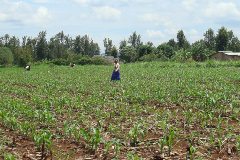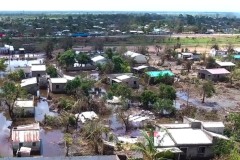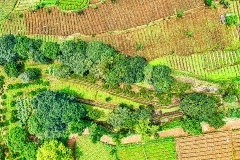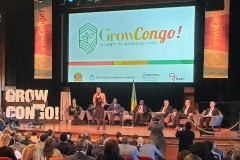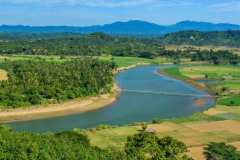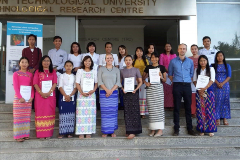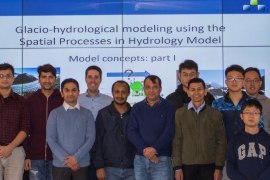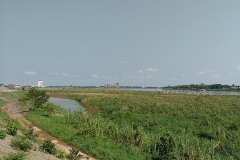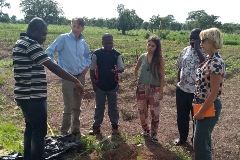Author: Martijn
23 June 2020
Mavo Diami: Drought Driver of Change for Angola
Source: Netherlands Space Office (NSO) The United Nations reminds us of two major effects of climate change every June 17th: desertification and drought. Especially in Africa, where it means food insecurity for at least 45 million people (source UN). In Angola, a consortium of Dutch organisations is working with the Government to introduce climate-smart technologies...
6 May 2020
FutureWater presents added value of Flying Sensors at the European Geosciences Union (EGU) conference
FutureWater, in collaboration with TUDelft and the TWIGA project, has participated in the Precipitation and Urban Hydrology session of the European Geosciences Union (EGU) conference which is held from 4-8 May. In response the ongoing coronavirus pandemic the EGU has gone completely virtual and hosted the EGU2020: Sharing Geoscience Online. This event will offer all...
1 May 2020
FutureWater launches APSAN-Vale Flying Sensor Portal
Today FutureWater launched a portal for flying sensor imagery taken in Mozambique as part of the APSAN-Vale project. The project, which started in 2018, is piloting innovations to increase the water productivity and food security for climate resilient smallholder agriculture in the Zambezi valley of Mozambique. It will demonstrate what the best combinations are of...
5 March 2020
FutureWater and HiView present at the GrowCongo! conference
At the GrowCongo! conference, organized by NABC, FutureWater and HiView conducted a pitch for a delegation from Republic of Congo including Prime Minister Clément Mouamba. Prime Minister Mouamba was accompanied by several ministers of his government, amongst which the Minister of Agriculture. The governmental team was present at the conference to promote agricultural business between...
31 January 2020
Advanced cloud computing for water resources management in Myanmar
FutureWater, together with HKV and Yangon Technological University, have successfully organized a symposium on Advanced cloud computing for water resources management in Myanmar on 13th of December 2019. The symposium was organized under the framework of the Orange Knowledge Tailor-Made Training (TMT) Program, which is funded by NUFFIC, the Dutch organization for internationalization in education....
9 December 2019
Scientists Rank World’s Most Important, Most Threatened Mountain Water Towers
Research provides new insight on mountain glacier–derived water resource systems, impacting up to 1.9 billion people globally. December 9, 2019 — Scientists from around the world have assessed the planet’s 78 mountain glacier–based water systems and, for the first time, ranked them in order of their importance to adjacent lowland communities, as well as their...
2 December 2019
Hands-on training with Google Earth Engine in Myanmar
From 4 till 15 November, FutureWater and HKV gave a hands-on training at Yangon Technological University on using the Google Earth Engine cloud computing platform for satellite-derived data analyses for water resources management in Myanmar. The 8-day training was organized under the framework of the Orange Knowledge Tailor-Made Training (TMT) Program, which is funded by...
4 November 2019
Training on glacio-hydrological modelling at the Institute of Tibetan Plateau Research
The Silk Road Economic Belt (SREB) is part of the Belt and Road Initiative, being a development strategy that focuses on connectivity and cooperation between Eurasian countries. Essentially, the SREB includes countries situated on the original Silk Road through Central Asia, West Asia, the Middle East, and Europe. The initiative calls for the integration of...
30 October 2019
Publication of Mekong State Of the Basin Report with substantial FutureWater contribution
Last week, the Mekong River Commission (MRC) released the latest Mekong State Of the Basin Report (SOBR), which is MRC’s flagship knowledge and impact monitoring product. The SOBR provides information on the current status and trends of water and related resources in the Mekong Basin. Key strategic recommendations are provided for uptake in the MRC...
13 September 2019
Scientific field campaign to estimate evapotranspiration at field scale in Ghana
During the last week of August, FutureWater and HiView joined TU Delft and local partners for a scientific field campaign at Nyankpale-Tamale in the northern part of Ghana. This was possible as part of the Horizon 2020 project TWIGA, Transforming Weather Water data into value-added Information services for sustainable Growth in Africa. Hosted by the...
